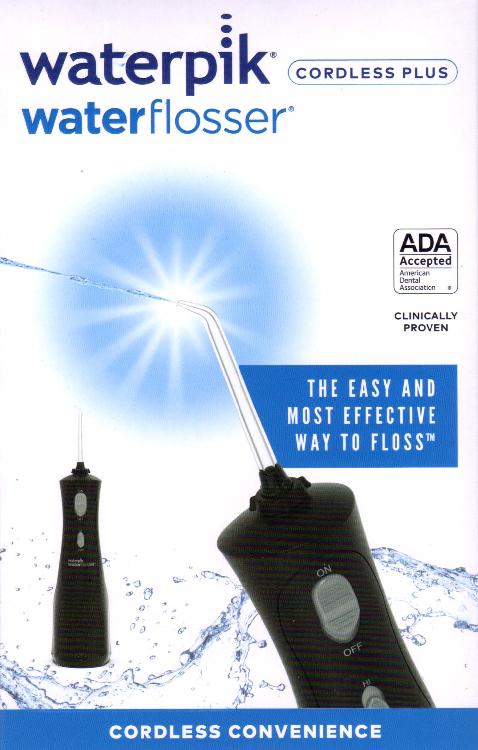
















Dental Hygiene - Part One
Copyright © July 1, 2019 by Robert Wayne Atkins, P.E.
All Rights Reserved.
The following is not medical or dental advice nor is it a medical or dental recommendation.
Please consult a licensed medical or dental professional to have your medical and dental questions answered.
Introduction
Modern dentistry is a true blessing to mankind. Modern dentists and dental hygienists can almost work miracles on the common dental problems that most people have today. Between visits to our dentist we have so many significantly improved dental products that we can keep our teeth in good condition until our next visit to the dentist. And frequently the only thing we need on that next visit is another good cleaning.
The purpose of this article is to mention a dental hygiene practice that has been around for thousands of years and which can still help people improve their dental hygiene without investing any money.
Dental Hygiene in the Past
 For thousands of years people had to take care of their teeth without the help of a dentist. Therefore parents simply told their children what they had learned from their parents and this process gradually continued, generation after generation, with only minor adjustments based on the success or failure of simple experiments with slightly modified procedures.
For thousands of years people had to take care of their teeth without the help of a dentist. Therefore parents simply told their children what they had learned from their parents and this process gradually continued, generation after generation, with only minor adjustments based on the success or failure of simple experiments with slightly modified procedures.
One simple piece of dental advice that cost no money and that everyone could easily practice was the following:
After you finish eating, rinse your mouth thoroughly with clean water. Swish the water vigorously from side to side inside your mouth and between your teeth. Then spit out the water. Do this at least three or four times. Then put a little fresh clean water in your mouth, tilt your head back, gargle, and then spit out the water.
Is the above advice still of any value today?
Let's evaluate the above advice based on what we know about dental hygiene in the 21st century.
Most of us are not able to brush our teeth after every meal. However, most of us have access to a personal water bottle and we have access to a restroom. It would only take a few minutes to visit a restroom and follow the above advice using water from our personal water bottle. But what would be the potential benefit of doing this?
Swishing clean water inside our mouth vigorously from side to side between our teeth would help to dislodge some of the food particles that may have entered the spaces between some of our teeth while we were eating. When we spit out the water it would carry with it those tiny food particles. If we gargle with a little clean water then any tiny food particles in the back of our mouth might get caught in the water and be expelled from our mouths when we spit out the water. This would get the food particles out of the back of our mouth so they are not coughed up into our mouth when we "clear" our throat and then those tiny food particles would have a chance to find a hiding place between our teeth. This simple process of rinsing and gargling with clean water would remove some, or maybe a lot, of the tiny food particles that could cause problems with our gums and with our teeth. It certainly can do no harm.
What would be the benefit of the above advice after we had just brushed our teeth? The tiny food particles that might still remain in our mouths in the spaces between out teeth will probably be covered with a tiny bit of slippery toothpaste. Rinsing several times with clean water will help to push the slippery tiny food particles out of the spaces between our teeth so we can spit them out. Rinsing several times will also remove almost all of the fluoride toothpaste from inside our mouth. Gargling with clean water will remove any tiny food particles and toothpaste from the rear of our mouths when we spit out the water. This entire process would help to prevent the ingestion of some of the fluoride in the toothpaste into our bodies.
Some people will counter the above advice by stating that they use a commercial brand of excellent "mouthwash" and that the mouthwash will do the same job as the above water rinse. This may be true if the mouthwash is used several times to rinse the mouth after brushing the teeth in the same way that the water should be used several times to rinse the mouth. If the mouthwash is only used once then it may not be as effective as rinsing several times with clean water.
A different strategy would be to rinse with clean water several times after brushing, and then finish with a mouthwash rinse. This simple ritual may have a significant long term benefit on your dental hygiene. It certainly could not hurt.
As always, the choice is yours.
String Flossing and Waterpic Flossing
 Brushing without flossing leaves food particles behind that can lead to gum disease, tooth decay, and bad breath.
Brushing without flossing leaves food particles behind that can lead to gum disease, tooth decay, and bad breath.
The two most common methods of flossing are to use either string floss or a waterpic flosser.
A waterpic sprays pulsating streams of water between and around your teeth and it removes the stuff that brushing misses.
Waterpics were introduced in 1962 and since then they have been subjected to at least 50 clinical research studies and they have consistently proven to improve oral health. A waterpic is approximately 51% more effective than using string floss for reducing the incidence of Gingivitis, twice as effective for preventing the bleeding of gums, and approximately 29% more effective at the removal of plaque.
Waterpics are preferred instead of string floss by individuals with braces, or with bridges, or with other dental appliances in their mouths.
Rinsing several times with clean water is similar to the cleaning action of a waterpic but rinsing with water cannot compare to the effectiveness of a waterpic. However, if a waterpic is not available, and if string flossing is not possible after eating, then rinsing your teeth several times with clean water could help to remove tiny food particles from between and around your teeth and help to improve your oral health.
A Very Short Story About Some of My Dental Experiences
I am deeply indebted to modern dentistry for the current condition of my teeth. I still have all of my teeth, including my four wisdom teeth. But I do have a few fillings, a few crowns, and I have had a few root canal procedures. But all of my teeth still work extremely well and I do not have any dental problems of which I am aware.
Since I was a very young child I have been going to the dentist. My earliest memory of visiting a dentist is when I was about 8 years old. While sitting in the waiting room I read a small cartoon book about teeth and how to take care of them. My first dentist advised me to always use a hard toothbrush because it did the best job of removing stuff from my teeth. I followed my dentist's advice but the hard toothbrush made my gums bleed even when I was trying to be careful and not let the toothbrush touch my gums. Therefore when my hard toothbrush gradually wore out and the bristles became soft I continued to use it faithfully because the soft bristles did not make my gums bleed. But after a few years the bristles would completely wear out and I would have to "break-in" a new hard toothbrush which was always a painful experience for me.
When I was in my twenties I commented to the dental hygienist who was cleaning my teeth that I was faithfully using a hard toothbrush. She immediately informed me that they had not recommended hard toothbrushes for many years and that all dentists now recommended that everyone use a soft toothbrush. I was delighted to hear the good news. And then she also told me that in addition to brushing my teeth with a soft toothbrush I should also brush my gums. So I immediately started using a soft toothbrush and I very, very gently brushed my gums because I did not want to make my gums bleed.
When I was in my fifties I commented to the dental hygienist who was cleaning my teeth that I was still brushing my gums. She immediately informed me that they had not recommended brushing your gums for many years because the brushing action destroys your gum tissue. Then she told me that when I brushed my teeth I should stick out my tongue and I should carefully brush the top of my tongue to kill germs and to make my breath smell better. I thanked her for her advice but I never brushed my tongue with my toothbrush. The reason was because I was now older and I realized that dental advice was silently advancing without my knowledge until I was "accidentally" made aware of the new dental paradigm. And I knew that the pores in the tongue absorbed whatever was put on the tongue and that it was immediately transferred into the blood stream. Although I knew that the fluoride in toothpaste was very good for my teeth, I also knew too much fluoride can be harmful to my body and that fluoride toothpaste should never be swallowed. (Note: This is the reason fluoride is not included in any brand of children's toothpaste.) And I knew that if I pressed the fluoride toothpaste down into the pores of my tongue with my toothbrush that my body would absorb more fluoride than I wanted to remain in my body after I had finished brushing my teeth. Therefore I do not brush my tongue with my toothbrush. One day in the future I may or may not be informed by my dental hygienist that dentists have not recommended brushing the tongue for many years. But I have already made the personal decision to not brush my tongue and I have never brushed my tongue with toothpaste. My decision to not follow this particular piece of dental advice has not appeared to have had any long term impact on my dental health or on the condition of my tongue.
Respectfully,
Grandpappy.
Grandpappy's e-mail address is: RobertWayneAtkins@hotmail.com




































 For thousands of years people had to take care of their teeth without the help of a dentist. Therefore parents simply told their children what they had learned from their parents and this process gradually continued, generation after generation, with only minor adjustments based on the success or failure of simple experiments with slightly modified procedures.
For thousands of years people had to take care of their teeth without the help of a dentist. Therefore parents simply told their children what they had learned from their parents and this process gradually continued, generation after generation, with only minor adjustments based on the success or failure of simple experiments with slightly modified procedures. Brushing without flossing leaves food particles behind that can lead to gum disease, tooth decay, and bad breath.
Brushing without flossing leaves food particles behind that can lead to gum disease, tooth decay, and bad breath.
